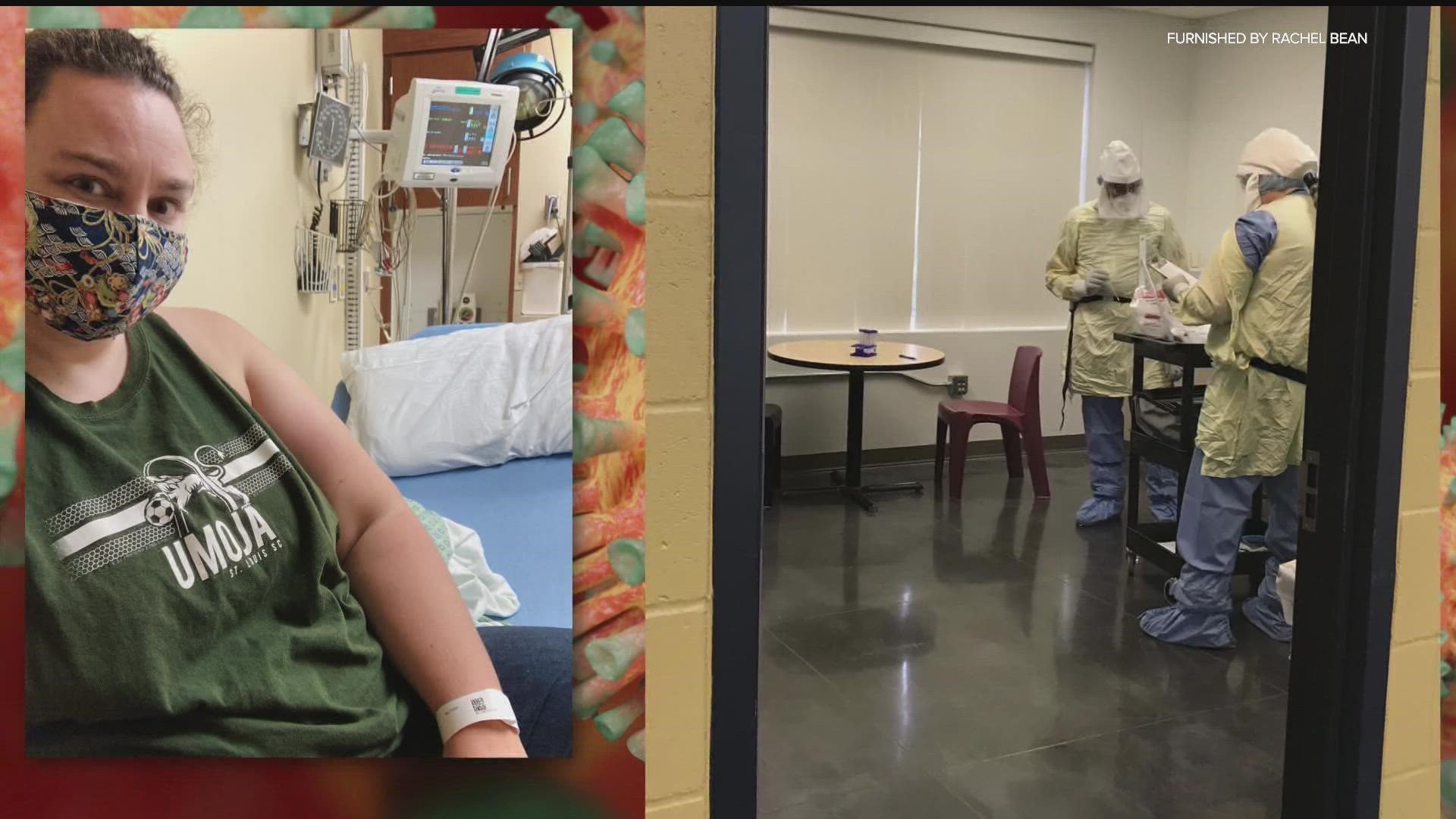MINNEAPOLIS — As COVID cases continue to fluctuate, hundreds of thousands of people are still trying to figure out why they still don't quite feel themselves after testing positive for the virus.
The world of long-haul COVID remains mysterious – and the individualized experience each person has with long COVID – does not make it any easier for doctors to narrow down exactly how they can help.
On good days, Rachel Bean's long COVID allows her to chat for a while.
"Ten thirty in the morning is one of my better times of the day, and by seven o'clock tonight, I'll totally be unable to focus or do anything," Bean said via Zoom in late April.
On really bad days, she said simple tasks feel often out of reach.
"In January this past year, I took the car for an oil change, sat in the line for a couple of hours, and then I got lost on the way home because I crashed so hard I couldn't remember where I was," Bean said.
This month will be Bean's second long COVID anniversary.
Long-haul COVID still remains a mysterious and extremely personal experience that's universally frustrating for all those struggling with it.
"When I'm really crashed, I lose quite a bit of motor function in my hands and arms, like holding my phone, writing in my journal, trying to eat popcorn, really fine motor things, become undoable," she said. "And then during those crashes I also sort of lose any amount of concentration or focus, my memory is swiss cheese."
Bean is one of millions of Americans now dealing with lingering post-COVID symptoms.
A study from September of 2021 from the CDC said 65.9% of respondents who had positive COVID tests reported long COVID symptoms that lasted for more than four weeks.
RELATED: How many times can you get COVID?
Symptoms range from fatigue to cognitive dysfunction, loss of smell or taste, hair loss, shortness of breath and post exertional malaise, which the worsening of symptoms following minor physical or mental exertion.
Symptoms also often don't lead to a clear diagnosis, according to M Health Fairview post COVID clinic co-director Dr. Tanya Melnik.
"Primary care providers are often at a loss as to what next step to take, or they're telling patients, well everything is normal, I'm not sure what to do with you," Melnik said.
Dr. Greg Vanichkachorn at the Mayo Clinic says there are clues, though.
"For example with fatigue people feel, yes we can feel terrible after a virus, a normal virus, not sleeping very well but the fatigue with long-haul COVID is quite profound," Vanichkachorn said. "So patients will say things like they have to take a nap for three to four hours after taking out their trash."
"Even in my house, washing the dishes even takes like three different times throughout the day to get them done," Bean testified.
Another thing that makes long COVID diagnosis tricky is that people like Bean are testing fine for things like conventional chest CTs, EKGs and pulmonary function, making it hard to prove illness for things like medical leave and applying for disability.
"It's kind of a weird set of circumstances, where you can be this debilitated and also not have any sort of formalized proof that, other than your word, that you are too sick to work and that you can't do anything," Bean said.
"A common frustration for patients with long-haul COVID is that they do all these tests and everything comes back normal," Vanichkachorn said. "Now what that doesn't mean is that their condition is normal, it means we just don't have the best tests for this."
"Our focus here is both on symptomatic treatment as well as helping patients get stronger," Vanichkachorn continued. "Many people with long COVID get told to exercise through this, kind of have a no pain no gain attitude. I'm a big proponent of exercise-- and that has its role in medical conditions, but not with long COVID. This is not one of those things you can grit your teeth to plow through and get out of it. Quite opposite, we have patients start very low with their activity levels and slowly increase over time."
Lastly, both doctors say patients often feel lonely, sometimes leading to depression and anxiety. Confirmation of their symptoms is also a big part of the service that clinics provide.
"It's difficult for patients at times when none of their friends are struggling with the same issues," Melnik said. "And they start to doubt their own symptoms, and I've had plenty of patients who have told me that 'oh I thought it was all in my head.'"
"Many patients really need to have that validation still today even though we recognize this condition for quite a while," Vanichkachorn said. "With that validation do people suddenly get better? No, I don't see that unfortunately but it does give them a glimmer of hope that they desperately need to start that recovery path."
Watch more on the coronavirus:
Watch the latest reports and updates on the coronavirus pandemic in Minnesota with our YouTube playlist:

